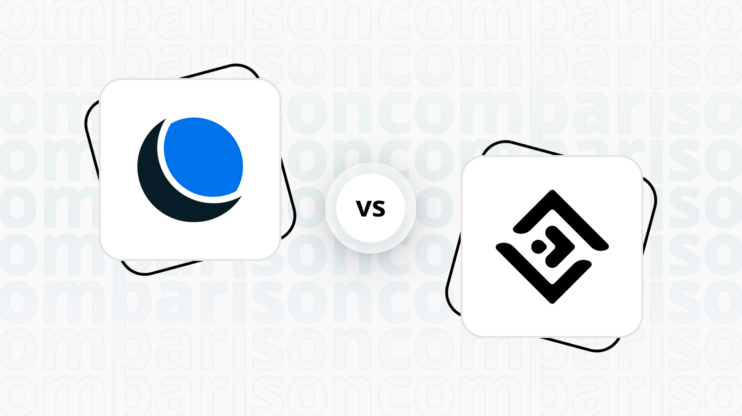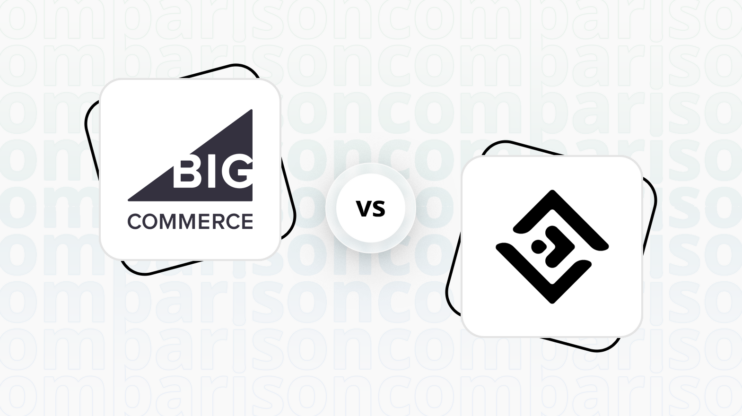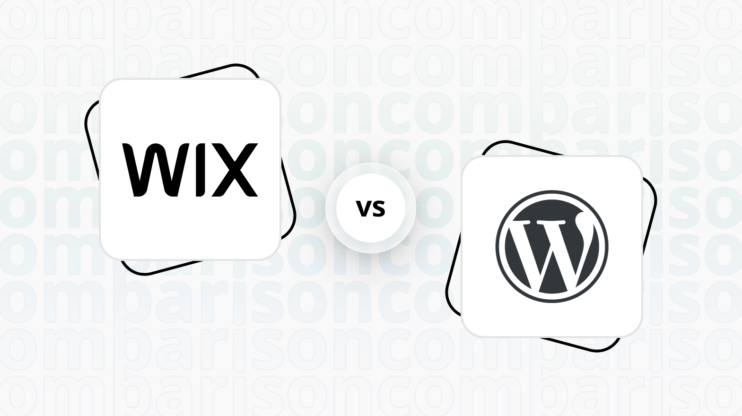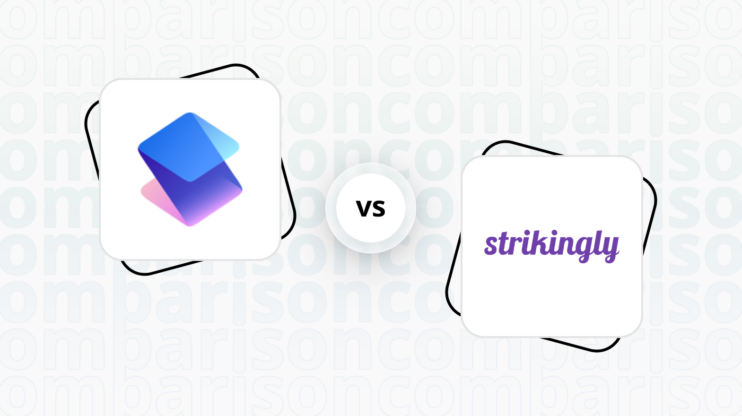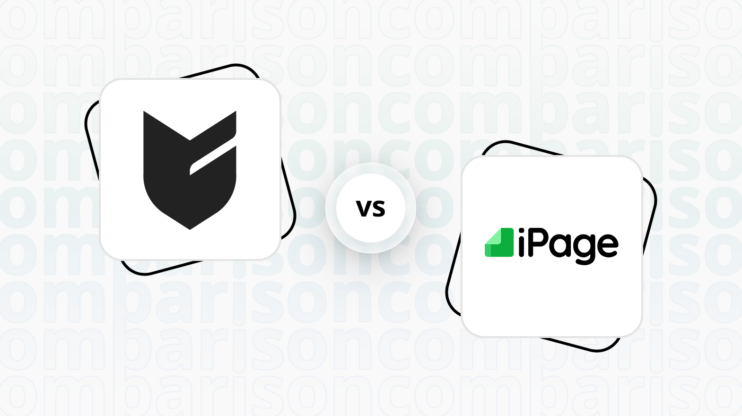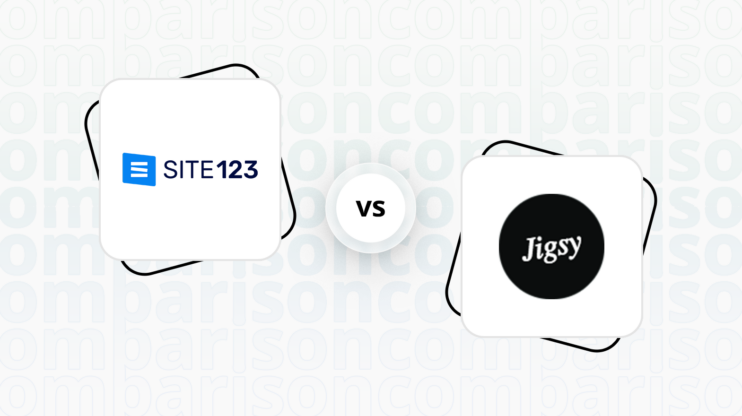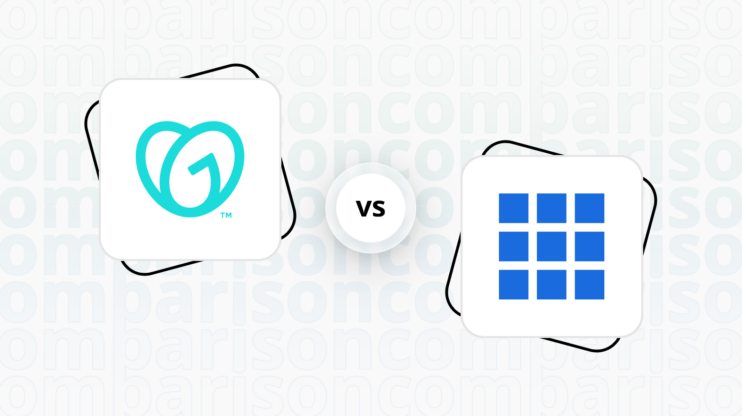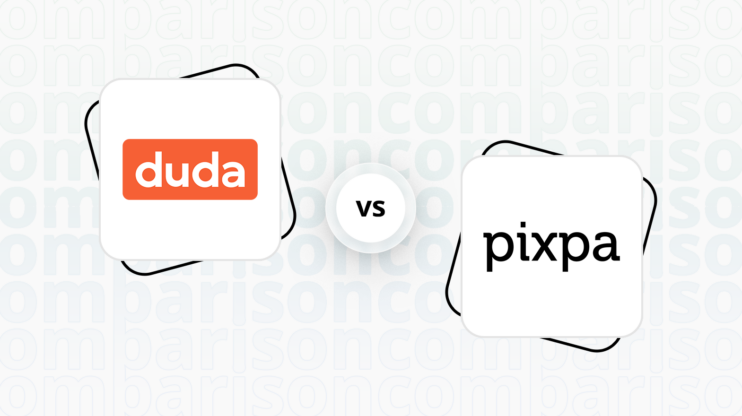Final verdict
Dreamhost and BigCommerce cater to different niches within the website building and ecommerce spectrum, each with its unique strengths.
-
Dreamhost (Overall Grade: 6.7/10)
excels in providing a user-friendly website building experience, particularly for those integrating with WordPress. It offers a wide range of plugins and strong marketing features, making it a solid choice for users looking for a versatile platform that combines website building with robust hosting solutions. Dreamhost’s emphasis on ease of use and comprehensive WordPress integration positions it well for bloggers, small businesses, and users looking to migrate or start their WordPress sites. -
BigCommerce (Overall Grade: 7.9/10)
stands out for its ecommerce capabilities, offering a wide range of features designed to support online stores at various stages of growth. With its focus on scalability, advanced SEO tools, and a plethora of built-in features for online selling, BigCommerce is tailored for businesses looking to expand their online presence. Its higher score reflects a platform that, despite a steeper learning curve, provides a comprehensive suite of tools for serious ecommerce ventures.

|

|
|
|---|---|---|
|
Design functionalities & templates |
7.6 |
7.8 |
|
Ease of use |
8.2 |
7.3 |
|
Ecommerce |
7.4 |
9.0 |
|
Website Editors |
7.3 |
7.9 |
|
Product testing options |
2.7 |
7.3 |
|
Price |
7.8 |
7.4 |
|
Hosting quality |
7.2 |
7.8 |
|
Website speed optimization |
3.5 |
7.6 |
|
Plugins and integrations |
8.8 |
7.7 |
|
Marketing features |
8.0 |
7.9 |
|
Customer support |
7.5 |
8.7 |
|
Security |
8.2 |
8.9 |
|
AI capabilities |
1.2 |
7.3 |
|
User Management |
8.8 |
8.9 |
| Overall |
6.7 |
7.9 |
Best for ecommerce
 7.4
7.4
 9.0
9.0
Verdict
: BigCommerce is the superior choice for ecommerce, offering a more robust set of features designed for scalability and comprehensive online store management.
-
Dreamhost
: While Dreamhost provides a solid foundation for ecommerce, especially for users integrated with WordPress, it falls short in offering the depth of ecommerce-specific features and scalability that BigCommerce does. Its strengths lie in hosting and general website building rather than dedicated ecommerce functionalities. -
BigCommerce
: BigCommerce shines with its focus on ecommerce, boasting a wide range of features from advanced SEO tools to unlimited product listings and multi-channel selling capabilities. It’s designed for businesses aiming to grow their online presence significantly, offering more in-depth customization and integration options compared to Dreamhost.
Best for informational & business websites
 7.5
7.5
 7.5
7.5
Verdict
: Dreamhost and BigCommerce tie in this category, each scoring 7.5. Both platforms offer unique strengths that cater to different aspects of building informational and business websites.
-
Dreamhost
: Known for its user-friendly website builder and seamless WordPress integration, Dreamhost is ideal for users looking for a blend of simplicity and flexibility. It excels in providing a straightforward platform for creating professional-looking websites without extensive coding knowledge, making it a strong contender for informational sites. -
BigCommerce
: While primarily an e-commerce platform, BigCommerce’s robust set of features and customizable templates make it equally capable of powering informational websites. Its focus on scalability and built-in tools for SEO and multi-channel selling positions it well for businesses looking to expand their online presence beyond just e-commerce.
Detailed comparison
Design functionalities & templates
Design FunctionalitiesRepresents how well each platform allows for creative design and customization of websites.Score Components:
- Template Variety (30%): Range and quality of design templates.
- Customization (30%): Flexibility and options for design alterations.
- User Interface (20%): Ease and intuitiveness of the design process.
- Responsiveness (10%): Adaptability to different devices and screen sizes.
- Innovation (10%): Unique design features and tools.
 7.6
7.6
 7.8
7.8
🏆
Winner: BigCommerce.
BigCommerce slightly edges out Dreamhost in terms of design functionalities and templates, offering a wider range of customizable templates and design options.
Dreamhost’s website builder offers a user-friendly interface that allows for a high degree of customization flexibility. Users can edit various elements including text, images, backgrounds, and layout structures to match their preferences. The platform also provides a wide range of themes and templates that can be further customized to ensure the final website aligns with the user’s brand identity.

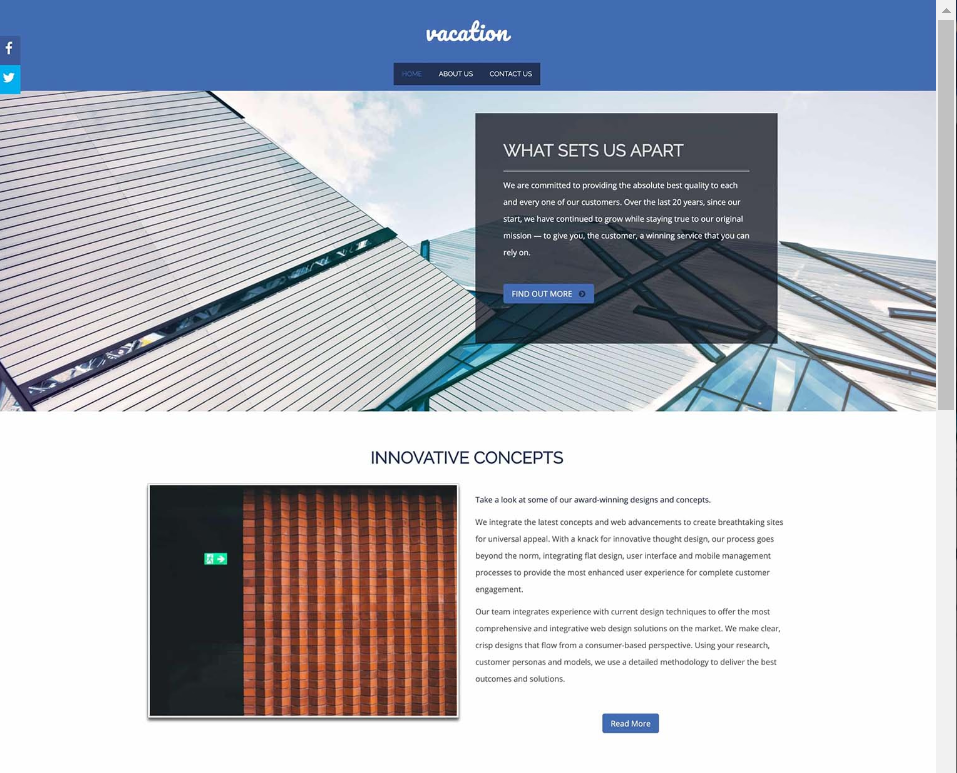
On the other hand, BigCommerce offers a variety of design templates for creating ecommerce websites, with a total of 240 themes available. Most of these themes come with up to four styling options, providing users with flexibility in design choices to match their brand’s aesthetic. There are 12 free themes, while the rest range in price from $150 to $300 each.
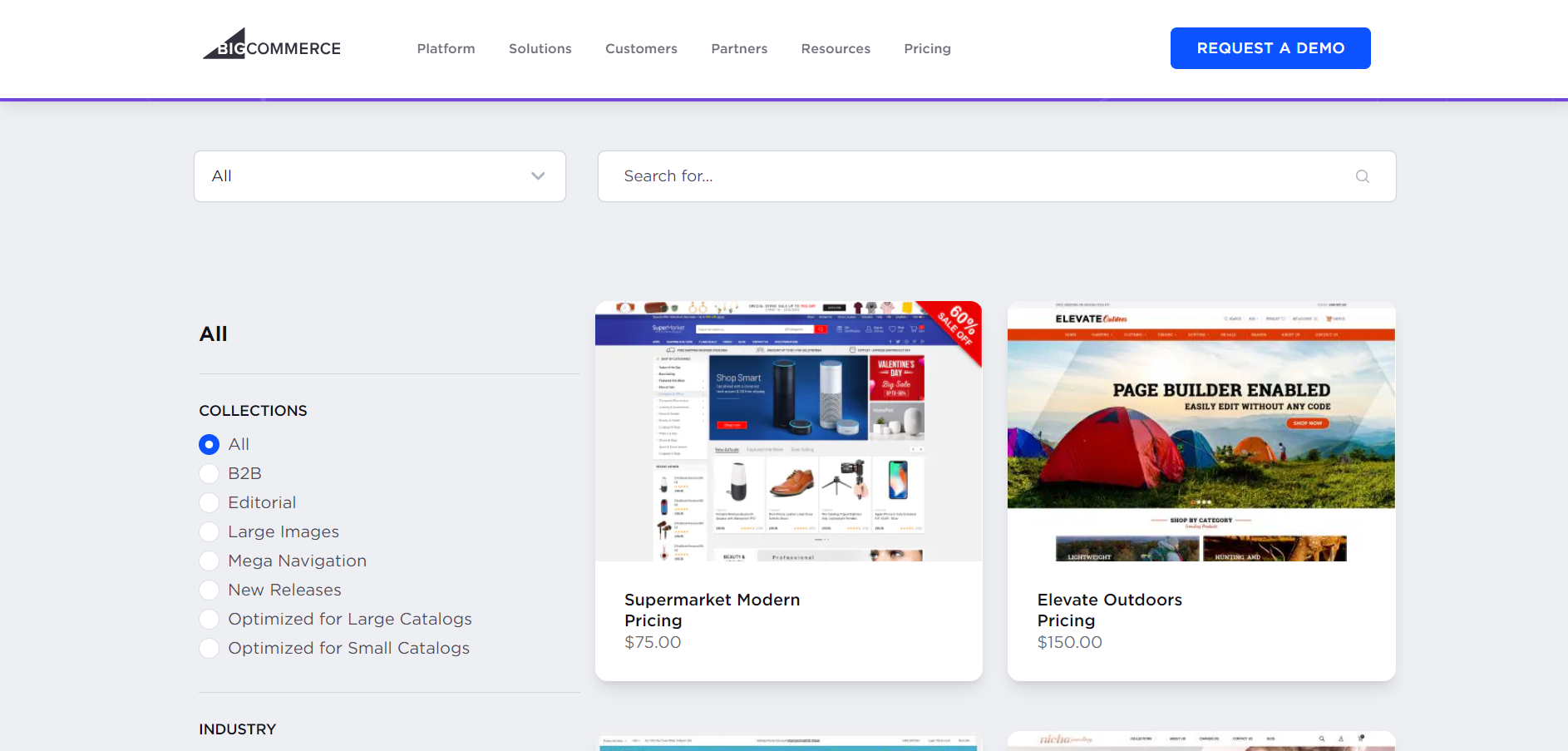
Get a head start on website creation with AI
Create a custom website tailored to your business needs 10X faster with 10Web AI Website Builder!
Ease of use
Ease of useReflects the platform’s overall user-friendliness.Score
Components:
- Learning curve (40%): Quickness and ease of getting started.
- Interface design (30%): Simplicity and intuitiveness of layout.
- User guidance (20%): Quality of tutorials and support.
- Flexibility (10%): Adaptability to various user skills.
 8.2
8.2
 7.3
7.3
🏆 Winner: Dreamhost
. Scoring 8.2, Dreamhost’s website builder is designed with simplicity in mind, making it highly accessible for users without prior web development experience. BigCommerce, with a score of 7.3, offers a robust platform but can be overwhelming for beginners or small businesses on a tight budget. If ease of use is a priority, Dreamhost is the clear winner in this category.
Learning Resources
🏆 Winner: BigCommerce
. While both platforms offer solid learning resources, BigCommerce goes a step further with its wide array of detailed tutorials and active community forums, making it easier for users to learn and adapt.
For ecommerce
EcommerceMeasures the platform’s effectiveness in supporting online business activities.Score Components:
- Ecommerce themes and templates (20%): Variety and design of templates.
- Product management (25%): Ease of managing and organizing products.
- Payment options (25%): Variety and convenience of payment methods.
- Ecommerce features (20%): Features for managing an ecommerce store.
- Integration (10%): Compatibility with external e-commerce tools and services.
 7.4
7.4
 9.0
9.0
When it comes to ecommerce, BigCommerce stands out with its comprehensive set of features, including advanced SEO tools, various payment gateway integrations, and multi-channel selling capabilities. It offers a wide range of customizable templates and design options, making it a popular choice for merchants looking to scale their online presence. On the other hand, Dreamhost offers a versatile platform for building ecommerce sites, with over 200 themes, drag-and-drop customization, and WooCommerce-ready features. However, it lacks round-the-clock live chat support, which could be a concern for users needing immediate help.

|

|
|
|---|---|---|
|
Ecommerce themes and templates |
7.0 |
8.0 |
|
Product page customization |
7.8 |
8.3 |
|
Payment processing and commissions |
7.5 |
9.2 |
|
POS capabilities |
7.0 |
8.5 |
|
Payment gateways |
7.7 |
9.0 |
|
Product numbers |
6.5 |
9.5 |
|
Additional ecommerce features |
7.2 |
8.4 |
Dreamhost ecommerce features:
- WooCommerce-Ready Themes
- Magento integration
- Shopify integration
BigCommerce ecommerce features:
- Unlimited Products
- Streamlined Single-Page Checkout
- Order Management
- Abandoned Cart Recovery
- Marketing and Sales Tools
Ecommerce themes & templates
DreamHost facilitates eCommerce site creation mainly through WooCommerce, offering a powerful, open-source platform with plans designed to cater to varying levels of eCommerce activity. Additionally, DreamHost’s WP Website Builder, equipped with BoldGrid, provides a range of mobile-friendly themes for easy site customization without coding knowledge. BigCommerce, on the other hand, provides a wide variety of eCommerce templates designed to enhance online shopping experiences and cater to different industries. These templates feature advanced functionalities like quick view, product suggestions, and complex search filters but may require performance optimization for maintaining speed.
Product page customization
Through the integration of WooCommerce, DreamHost’s website builder offers a range of customization possibilities for e-commerce product pages to enhance the shopping experience. These possibilities include layout adjustments like modifying the single product page layout and adding custom tabs, introducing custom fields and sections for additional product information and FAQs, implementing dynamic content like personalized recommendations, and enabling product variations with swatches and custom product builders. In contrast, BigCommerce allows for extensive customization of product pages, including the ability to create detailed product variants, customize options like custom fields, and upload multiple images or videos for each product.
Payment processing
DreamHost supports a variety of popular payment gateways like PayPal, Stripe, Authorize.Net, Amazon Pay, and Square, each with its own fee structure but no additional charges from DreamHost. These gateways offer features like POS capabilities, fraud detection, and international currency support, making DreamHost a versatile choice for website builders focusing on WordPress integration. BigCommerce, on the other hand, supports over 65 pre-integrated online payment solutions, serving customers across 230 countries with more than 140 currencies, without charging additional transaction fees for using third-party payment gateways. This approach provides merchants with the flexibility to choose the best payment solution for their business needs, including the option for custom integration to cater to specific regional payment preferences. Furthermore, BigCommerce’s integration with various POS systems allows for seamless online and in-store sales management, offering a comprehensive solution for businesses looking to maximize their sales channels.
Website Editors
Website EditorsEvaluates the platforms’ website building and editing capabilities.Score Components:
- Customization tools (40%): Range and power of editing features.
- Editor usability (30%): User experience within the editor.
- Design flexibility (20%): Freedom in layout and design changes.
- Update and maintenance ease (10%): Simplicity of updating and maintaining the site.
 7.3
7.3
 7.9
7.9
🏆
Winner: BigCommerce
. BigCommerce, with a score of 7.9, offers an extensive set of tools designed for creating professional and engaging online stores without requiring coding knowledge. It provides a user-friendly drag-and-drop interface, robust eCommerce capabilities including product management and secure payment processing, and customizable templates to match brand aesthetics. The platform also features powerful SEO and marketing tools, app integrations for extended functionality, and comprehensive analytics to track website performance.
Dreamhost’s website builder, scoring 7.3, utilizes BoldGrid, providing a user-friendly interface for creating and customizing WordPress websites, employing a drag-and-drop editor that eliminates the need for coding skills. It offers a selection of mobile-friendly themes to accommodate various website needs, along with essential tools like backups to safeguard user data. The builder streamlines the website creation process, from theme selection and layout customization to the final installation, enabling users to easily adjust their site’s appearance and functionality.
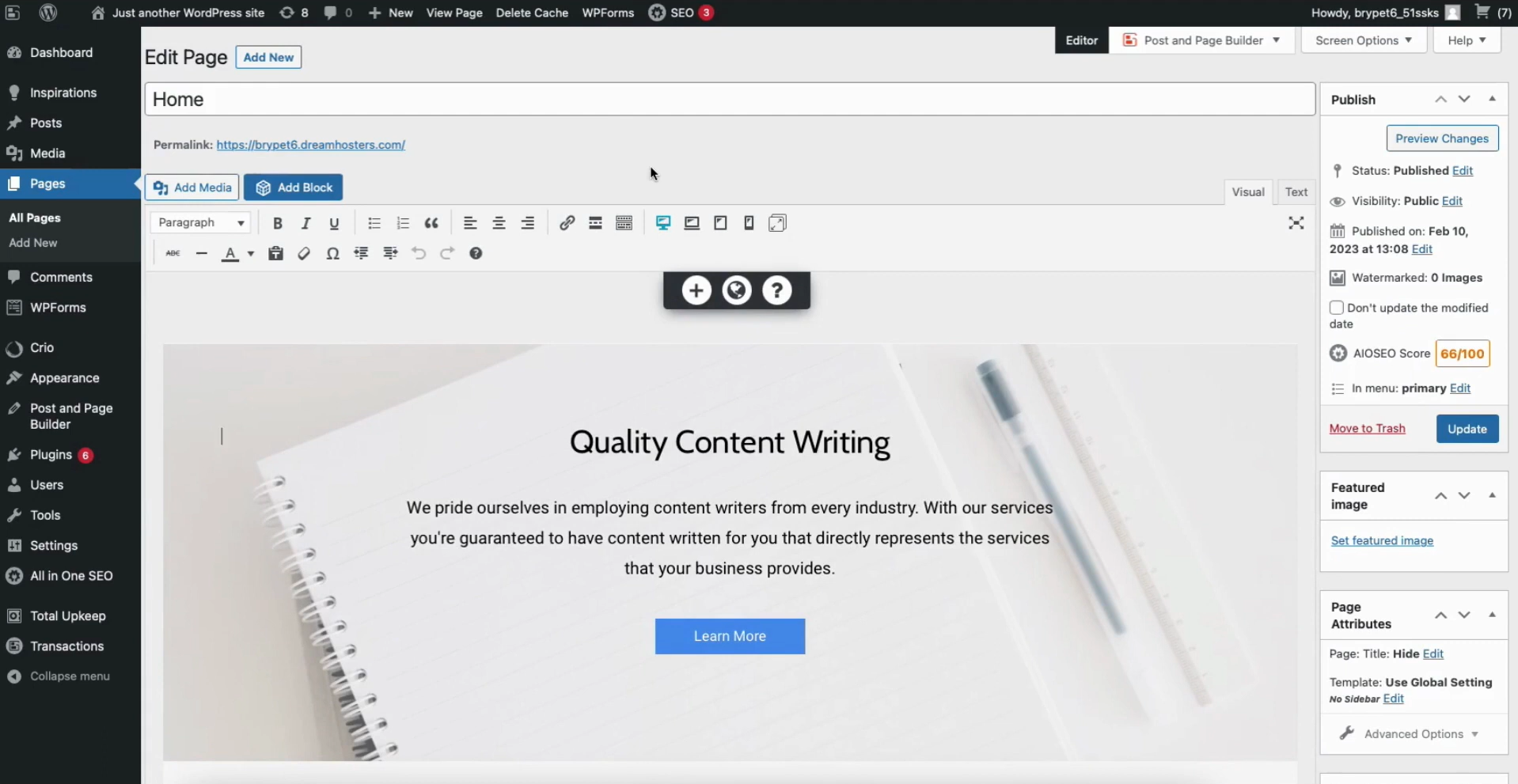
Mobile editor/app
 5.5
5.5
 7.5
7.5
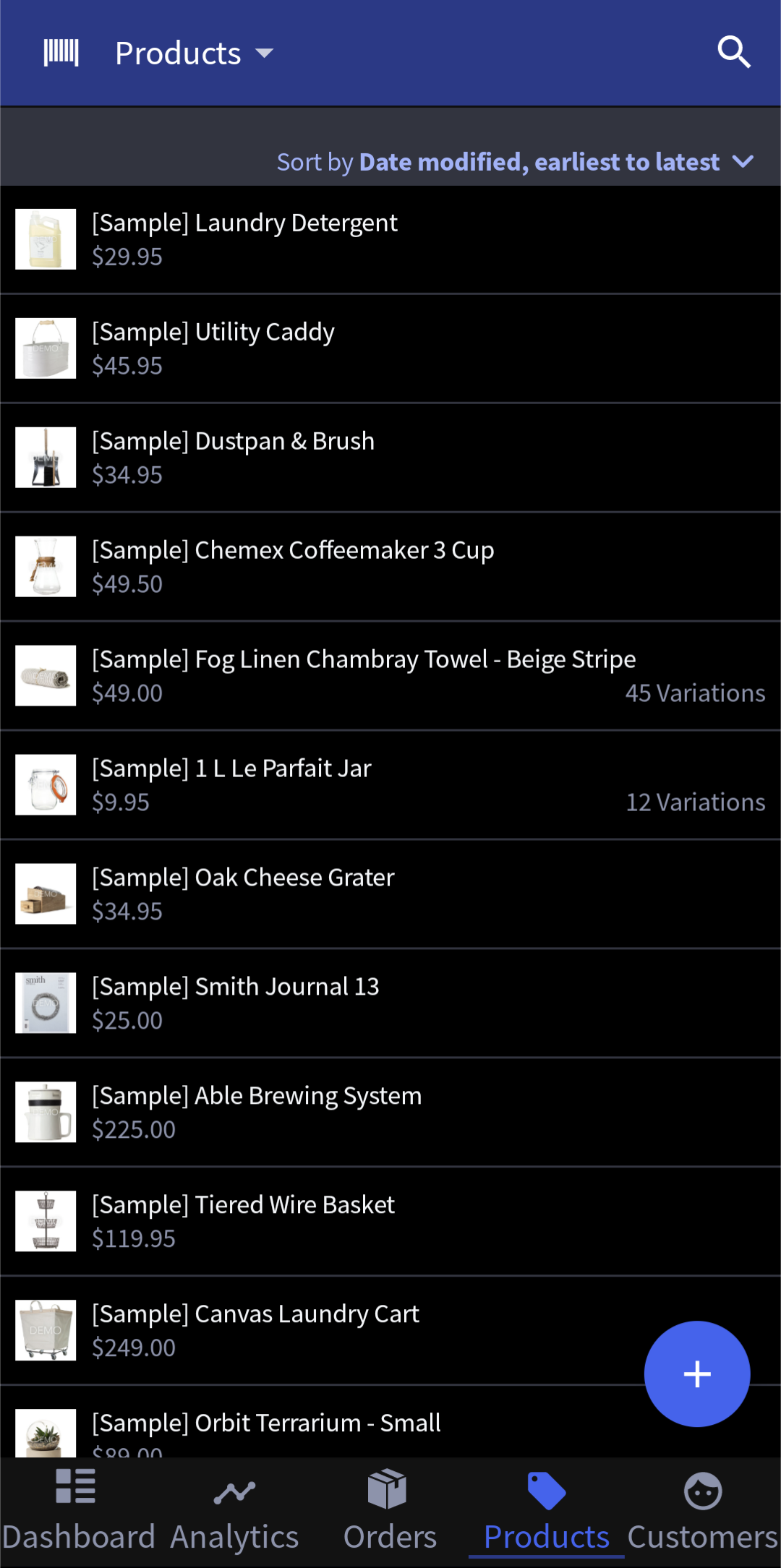
🏆
Winner: BigCommerce
. Both Dreamhost and BigCommerce do not offer a dedicated mobile editor app for website editing. However, BigCommerce provides a mobile app that allows users to access the dashboard, analytics, orders, and the ability to add or edit products. On the other hand, Dreamhost does not have a dedicated mobile app, but users can modify their website using a mobile browser, albeit with certain restrictions.
Considering these factors, BigCommerce scores higher in the mobile editor category due to its mobile app that offers more functionalities compared to Dreamhost.
Product testing options
Product Testing OptionsAssesses the options for trying out platform features before commitment.Score Components:
- Trial quality (40%): Extent and usefulness of the trial or free version.
- Feature accessibility (30%): How many features are available to test.
- Trial duration (20%): Length of the trial period.
- Ease of transition (10%): Smoothness of moving from trial to paid plans.
 2.7
2.7
 7.3
7.3
Overall Result
:
BigCommerce Wins
. BigCommerce scores 7.3, significantly higher than Dreamhost’s 2.7. BigCommerce offers a 14-day free trial, allowing users to test premium features, while Dreamhost does not provide a free or trial version. However, Dreamhost does offer a 30-day money-back guarantee, which can be used to test premium features.

|

|
|
|---|---|---|
|
Free Plan |
No | No |
|
Trial Duration |
No |
14 days |
|
Testing Premium Features |
During 30-day refundable period |
During free trial period |
|
Money Back Guarantee |
30-day money back guarantee |
No |
Price
PriceLooks at the cost-effectiveness and value for money of each platform.Score Components:
- Plan value (40%): What each pricing tier offers.
- Transparency and clarity (30%): Clearness of pricing structures.
- Flexibility of plans (20%): Range of options to suit different budgets.
- Hidden costs (10%): Additional expenses not included in the plan.
 7.8
7.8
 7.4
7.4
Dreamhost offers a range of shared and cloud hosting plans, while BigCommerce provides ecommerce plans, including an Enterprise plan with customizable features and pricing.

|

|
|
|---|---|---|
|
$0-$10 |
Shared Starter ($7.99/month): Shared Hosting with unmetered bandwidth but low SSD storage, Free SSL certificate, automated daily backups. This plan allows to manage only 1 website and there is no limitation of number of pages offered. Value for price: 6.5 |
No offering at this amount. |
|
$10-$20 |
Shared Unlimited ($13.99/month): Shared Hosting with unlimited websites, unmetered bandwidth, but low SSD storage, pre-installed Free SSL certificate, automated daily backups. Value for price: 7.5 |
No offering at this amount. |
|
$20-$30 |
DreamPress ($23.99/month): Isolated Cloud hosting with unmetered bandwidth, 30GB SSD storage, staging website, fast NGINX pre-installed Free SSL certificate, Free WordPress migrations, automated daily backups and on-demand 1-click restore, specialized WordPress support. This plan allows to manage only 1 website and there is no limitation of number of pages offered. Value for price: 8.0 |
No offering at this amount. |
|
$30-$40 |
DreamPress Plus ($34.99/month): Isolated Cloud hosting with unmetered bandwidth, 60GB SSD storage, staging website, unlimited CDN, fast NGINX pre-installed Free SSL certificate, Free WordPress migrations, automated daily backups and on-demand 1-click restore, specialized WordPress support, 3-phone support callbacks. This plan allows to manage only 1 website and there is no limitation of number of pages offered. Value for price: 8.5 |
Standard ($39.00/month): Unlimited products, file storage, and bandwidth, suitable for small businesses. Limited to $50k in online sales per year and up to 4 inventory locations. Value for price: 7.0 |
|
$80-$110 |
DreamPress Pro ($89.99/month): Isolated Cloud hosting with unmetered bandwidth, 120GB SSD storage, staging website, unlimited CDN, fast NGINX pre-installed Free SSL certificate, Free WordPress migrations, automated daily backups and on-demand 1-click restore, specialized WordPress support, 5-phone support callbacks and priority support. This plan allows to manage only 1 website and there is no limitation of number of pages offered. Value for price: 9.0 |
Plus ($105.00/month): Includes Standard features, plus customer segmentation and abandoned cart saver. Limited to $180k in online sales per year and up to 5 inventory locations. Value for price: 7.5 |
|
$300+ |
No offering at this amount. |
Pro ($399.00/month): All Plus features, plus Google customer reviews and advanced search filters. Limited to $400k in online sales per year, and up to 8 inventory locations. Additional $150/month for every $200k in online sales. Value for Price: 8.0 |
location. As a result in rare cases the prices displayed here can differ from the ones you see on their
websites.
Hosting quality
Hosting
qualityExamines the reliability and performance of the hosting solutions.Score Components:
- Uptime (40%): Consistency and reliability of website availability.
- Speed (30%): Loading times and performance.
- Bandwidth and storage (20%): Sufficiency of resources provided.
- Data centers (10%): Quality and distribution of hosting infrastructure.
 7.2
7.2
 7.8
7.8
🏆
Winner: BigCommerce
BigCommerce edges out Dreamhost with its scalable cloud hosting, unlimited storage and bandwidth, and a 99.99% uptime guarantee. Dreamhost, while offering shared and cloud hosting options with a 100% uptime guarantee, falls short in comparison due to its lower uptime of 99.93% and limited data center locations.

|

|
|
|---|---|---|
|
Do they offer hosting? |
Yes, included in all their plans |
Yes, scalable cloud hosting, with unlimited storage and bandwidth |
|
Data Centers: |
2 data centers in US: Ashburn, Virginia and Hillsboro, Oregon |
BigCommerce does not disclose the locations of its data centers |
|
Type of hosting: |
Shared Hosting, Cloud Hosting |
Cloud Hosting |
|
Uptime: |
99.93% |
99.9% |
|
Uptime Guarantee: |
Yes, 100% |
Yes, 99.99% |
Website Speed Optimization
Website Speed OptimizationEvaluates optimization of website loading timesScore Components:
- PageSpeed Score (30%): Google’s score indicating performance optimization.
- Loading Time (30%): The average time until a website is fully interactive.
- Mobile Optimization (15%): Optimization effectiveness for mobile devices.
- Resource Optimization (15%): Optimizing images, scripts, and other heavy resources.
- CDN Usage (10%): Use of CDN to enhance speed across geolocations.
 3.5
3.5
 7.6
7.6
🏆 Winner: BigCommerce
Both Dreamhost and BigCommerce prioritize website performance and page speed, but BigCommerce has a more comprehensive approach to speed optimization and provides tools for Core Web Vital improvements.

|

|
|
|---|---|---|
|
Focus |
Built-in Caching, Code minification, Image optimization |
Image Optimization, Code minification, Optimized templates, Using AMP, Caching |
|
Performance Tools |
No specific tools mentioned |
Various tools for CVW improvements |
|
Key Strategies |
Built-in Caching on higher plans, Code minification, Image optimization |
Image Optimization, Code minification, Optimized templates, Using AMP, Caching |
|
Load Times |
1.75-3 seconds average |
Varies depending on optimization and website complexity |
|
Page Speed Scores Range |
No data available |
Varies depending on optimization and website complexity |
|
Core Web Vitals Improvement |
No information disclosed |
Provides users with many tools for CVW improvements |
BigCommerce has a comprehensive approach to speed optimization, including image optimization, code minification, optimized templates, using AMP, and caching. They also provide users with many tools for Core Web Vital improvements. However, the load times and PageSpeed scores vary depending on the optimization and complexity of the website.
On the other hand, Dreamhost focuses on built-in caching on higher plans, code minification, and image optimization. Their average load times range from 1.75 to 3 seconds. However, no data is available for their PageSpeed scores, and they do not disclose any information on their Core Web Vital improvements.
Get a head start on website creation with AI
Create a custom website tailored to your business needs 10X faster with 10Web AI Website Builder!
Plugins and integrations
Plugins and integrationsMeasures the range and effectiveness of additional plugins and integrations.Score Components:
- Variety of options (40%): Range of available add-ons.
- Integration smoothness (30%): Ease of integrating plugins into the site.
- Quality of plugins (20%): Functionality and reliability of the options.
- Custom integration capabilities (10%): Support for custom or third-party integrations.
 8.8
8.8
 7.7
7.7
🏆 Winner: Dreamhost.
Dreamhost scores 8.8, offering a wide range of WordPress plugins that cover a wide range of functionalities, enabling users to extend their sites functionality. BigCommerce, with a score of 7.7, supports a wide array of apps and integrations, including ERP and CRM systems, 3PL services, POS systems, and various marketing tools, to enhance eCommerce functionalities. However, Dreamhost’s extensive range of plugins and seamless integrations with WordPress give it the upper hand.
It is worth mentioning that both platforms offer a mix of free and paid plugins, catering to a range of business needs and budgets.
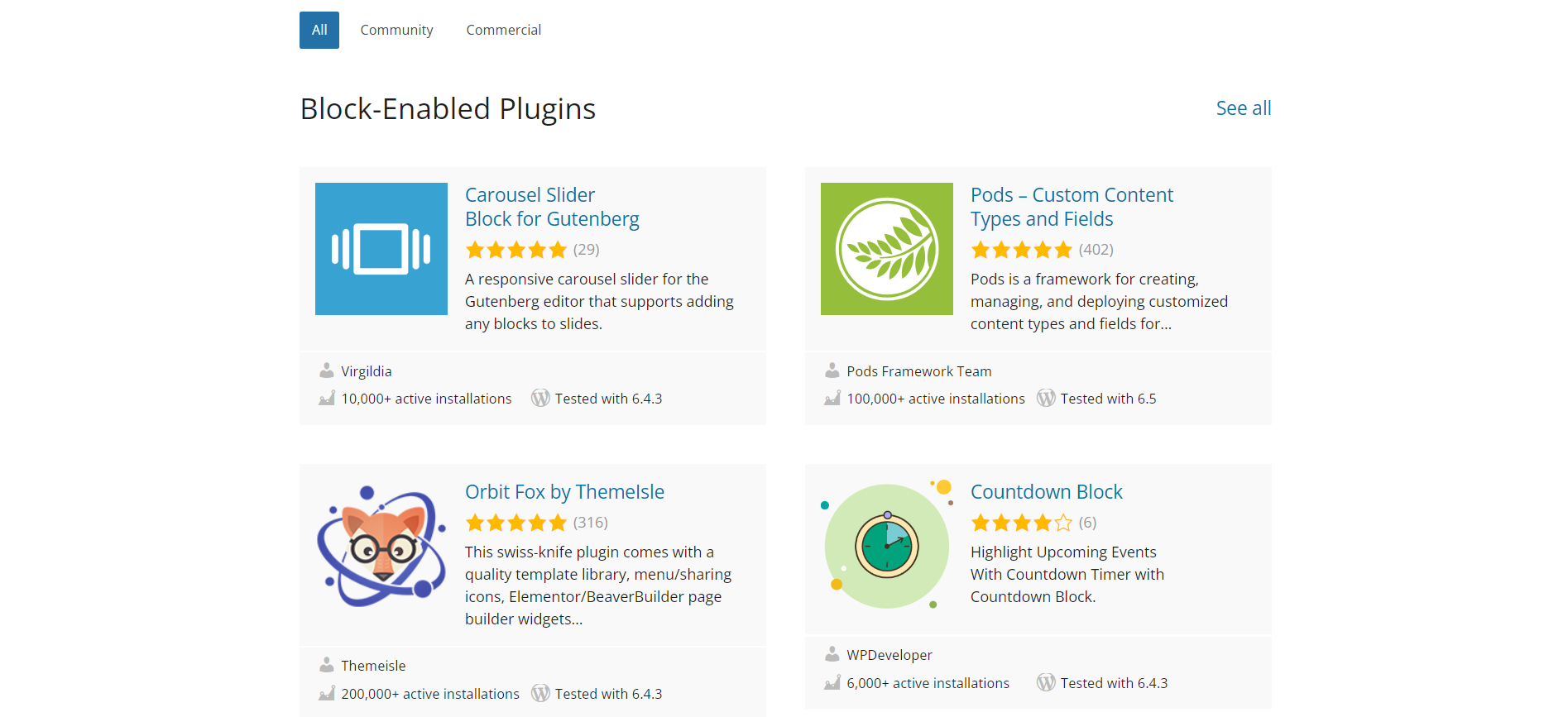
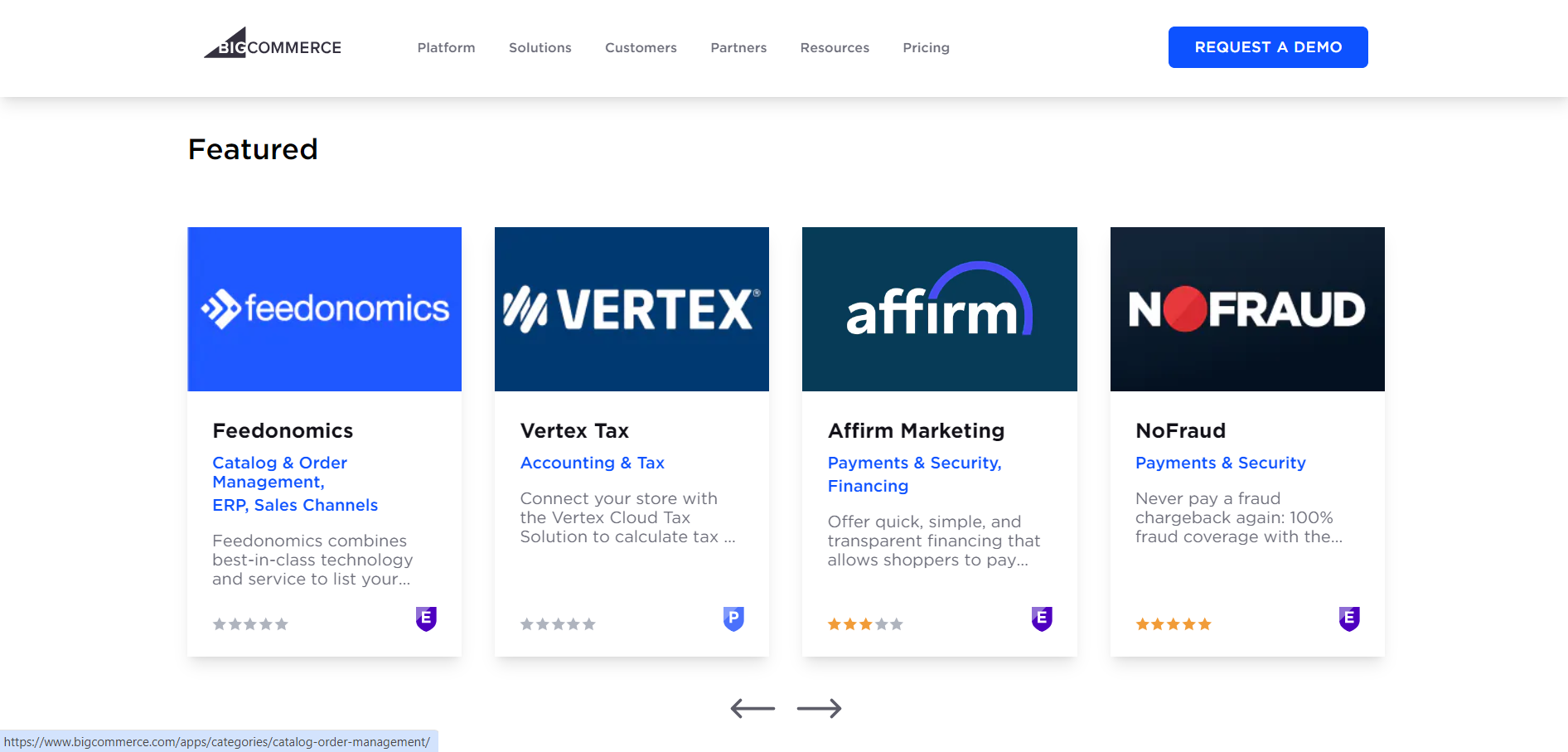
Marketing Features
Design FunctionalitiesRepresents how well each platform allows for creative design and customization of websites.Score Components:
- Template Variety (30%): Range and quality of design templates.
- Customization (30%): Flexibility and options for design alterations.
- User Interface (20%): Ease and intuitiveness of the design process.
- Responsiveness (10%): Adaptability to different devices and screen sizes.
- Innovation (10%): Unique design features and tools.
 8.0
8.0
 7.9
7.9
🏆
Overall Winner: Dreamhost
. Dreamhost edges out BigCommerce with a slightly higher score, indicating a more comprehensive set of marketing features. However, both platforms offer a robust set of tools for SEO, email marketing, blogging, social media integration, analytics and reporting, and ads and promotions.

|

|
|
|---|---|---|
|
SEO Tools |
Comprehensive SEO Toolkit |
Comprehensive SEO features for e-commerce |
|
Email Marketing |
Integration with AWeber and MailChimp |
Integration with various email marketing services |
|
Blogging |
Blog templates, comments, categories and tags |
Post scheduling, comments, social media share buttons, categorization and tags |
|
Social Media Integration |
Integration with Facebook, Twitter, and LinkedIn |
Sell directly on Instagram and Facebook |
|
Analytics and Reporting |
Google Analytics integration |
Comprehensive suite of analytics and reporting features |
|
Ads and Promotions |
Integration with third-party plugins |
Comprehensive built-in marketing tools |
Customer Support
Customer supportEvaluates the quality and availability of support options.Score Components:
- Response time (40%): Speed of support responses.
- Support quality (30%): Effectiveness and helpfulness of the support.
- Availability (20%): Range of support channels (phone, chat, email).
- Resource richness (10%): Quality of self-help and educational materials.
 7.5
7.5
 8.7
8.7
🏆 Winner: BigCommerce
. BigCommerce takes the lead in this category with its 24/7 customer support available through various channels, including phone, email, and live chat. The platform also provides dedicated phone lines for several regions and requires a support pin for personalized assistance. An extensive knowledge base and active community forums supplement these direct support options, allowing users to find answers and share experiences.
On the other hand, Dreamhost offers 24/7 live chat and email support, with phone support callbacks available depending on the user’s specific plan. However, it does not provide any specific support for enterprises, unlike BigCommerce, which offers extensive customer support for its enterprise plans, including express routing and priority support.
Security
SecurityLooks at the platforms’ security measures and data protection.Score Components:
- Data protection (40%): Safeguards for user and customer data.
- SSL and encryption (30%): Implementation of secure connections.
- Compliance (20%): Adherence to industry security standards.
- Regular updates (10%): Frequency of security updates and patches.
 8.2
8.2
 8.9
8.9
🏆
Winner: BigCommerce
. BigCommerce’s security measures are robust and comprehensive, ensuring the safety of online stores. They adhere to international regulations like GDPR and CCPA, employ data encryption, and host on secure data centers. Regular security audits and continuous monitoring help preempt vulnerabilities. BigCommerce also empowers merchants with resources for best practices in security management.
Although Dreamhost offers comprehensive security measures such as free SSL certificates, domain privacy, multi-factor authentication, and daily backups, it has experienced breaches in the past. This highlights the importance of continuous vigilance and the implementation of personal security practices alongside provider measures.
AI Capabilities
AI capabilitiesMeasures the effectiveness of AI-driven features and tools.Score Components:
- Automation efficiency (40%): Impact of AI on streamlining processes.
- Personalization (30%): AI-driven customization for users or customers.
- AI-Assisted design (20%): Role of AI in website design and functionality.
- Data analysis (10%): Use of AI in interpreting user data and analytics.
 1.2
1.2
 7.3
7.3

|

|
|
|---|---|---|
|
AI Builder |
|
BigCommerce does not have an AI website builder |
|
AI Ecommerce features |
Dreamhost does not have any AI powered ecommerce features |
Personalized product recommendations, AI on-site search, and AI powered chatbots |
|
AI content generation |
AI business name generator |
|
🏆 Winner: BigCommerce
. BigCommerce, with a score of 7.3, offers a range of AI-powered features that enhance ecommerce operations and content generation. These features include personalized product recommendations, AI on-site search, AI-powered chatbots, and AI content generation tools.
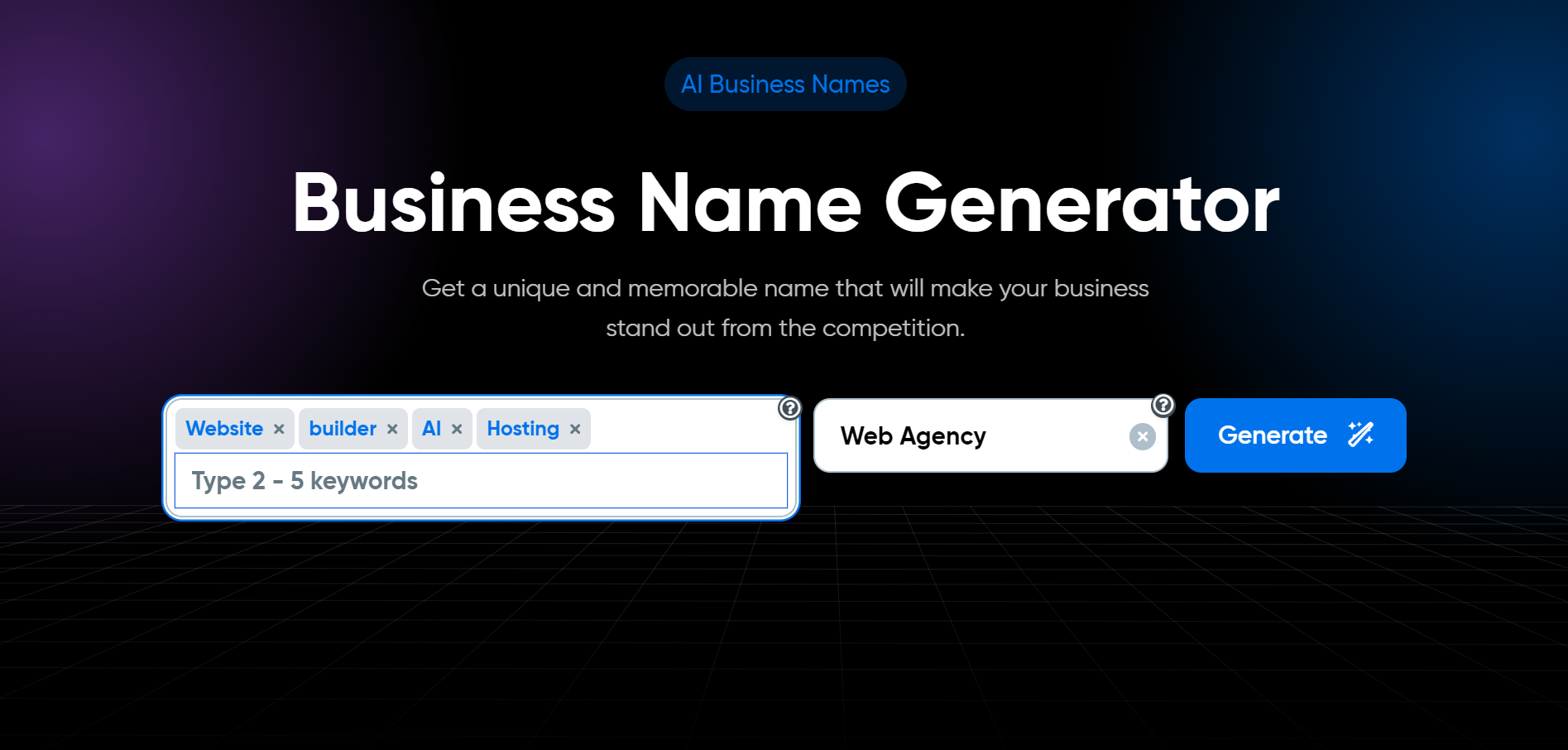
Dreamhost, with a score of 1.2, has limited AI capabilities. Its only AI feature is a business name generator, which uses AI to provide a list of potential business names based on the industry and a few keywords provided by the user.
User Management
User ManagementAssesses the platforms’ capabilities in managing user roles, permissions, and accessibility.Score Components:
- Role Customization (40%): Flexibility in creating and defining user roles and
permissions. - Ease of Management (30%): User interface and tools for managing users.
- Access Control (20%): Effectiveness of access control measures for different user
levels. - Scalability (10%): Ability to manage a growing number of users efficiently.
 8.8
8.8
 8.9
8.9
🏆 Winner: BigCommerce
. Both Dreamhost and BigCommerce offer robust user management capabilities, but BigCommerce edges out with a slightly higher score of 8.9 compared to Dreamhost’s 8.8.
- Dreamhost primarily uses WordPress, which allows for multiple users to edit a website. WordPress enables the addition of numerous users with various roles such as Administrator, Editor, Author, Contributor, and Subscriber. Each role has its own set of permissions and capabilities, allowing for flexible and controlled access for different users.
- BigCommerce allows for an unlimited number of staff accounts with various roles and permissions, including Sales Staff, Sales Manager, Store Administrator, Store Owner, and Custom roles.
Dreamhost User Roles and Access Levels:
| Role | Description | Access Highlights |
|---|---|---|
| Administrator | Users with full access to all administration features, including Elementor settings. | Can edit all content, Access to Elementor settings, Can install plugins and themes, Can manage users |
| Editor | Users who can manage and publish content including pages and posts. | Can edit pages/posts created with Elementor, Cannot access Elementor settings, Can manage categories, tags, and links, Can moderate comments |
| Author | Users who can publish and manage their own posts. | Can create posts with Elementor, Cannot edit pages, Limited access to media library, Cannot access Elementor settings |
| Contributor | Users who can write and manage their own posts but cannot publish them. | Can create content with Elementor, Cannot publish or edit pages, No access to Elementor settings, Submissions require review by higher-level roles |
BigCommerce User Roles and Access Levels:
| Role | Description | Access Highlights |
|---|---|---|
| Sales Staff | Enables all Sales Staff permissions | Manage, edit, and add orders – Finalize manual orders with manual payments – Manage returns, capture funds, and refund orders – Manage and edit customers – Manage and edit product reviews – Manage legacy coupons and promotions – Use Image Manager |
| Sales Manager | Enables all Sales Staff and Sales Manager permissions | Includes Sales Staff permissions – Manage, create, edit, and delete products – Manage product options and categories – Export orders – Manage customer store credit and export customers – Manage blogs, brands, and various reports (Ecommerce Analytics reports, abandoned cart reports, etc.) – Edit inventory and manage channels |
| Store Administrator | Enables all Sales Staff, Sales Manager, and System Admin permissions | Includes Sales Staff and Sales Manager permissions – Manage users and form fields – Manage settings (product filtering, store settings, checkout, inventory, order notifications, etc.) – Manage payments, shipping, and tax settings – Import catalog entities and customers – Access store design tools and Page Builder – Manage customer groups – Take store down for maintenance |
| Store Owner | Includes all permissions and is the person financially responsible for the account; this role has exclusive access to various account-related features. | Full access to all permissions and features across the platform – Exclusive access to account-related features and settings not available to other roles |
| Custom | Use this option to create your own combination of permissions. You can also opt to customize one of the other roles. | Customize permissions based on specific needs – Mix and match permissions from different roles to create a unique role with tailored access |
Additional Features

|

|
|
|---|---|---|
|
SSL Certificate |
|
|
|
Custom Domain |
|
|
|
Free Custom Domain Included |
|
|
|
International Domains |
|
|
|
Mobile Responsive |
|
|
|
Page Speed |
|
|
|
Website Builder Mobile App |
|
|
|
Convert a Website To An App |
|
|
|
Website Analytics |
|
|
|
Multilingual Sites |
|
|
|
Multiple Users |
|
|
User Feedback
Users appreciate DreamHost WP Website Builder for its ease of use, broad template selection, and integrated hosting solutions, highlighting its utility in building and managing websites efficiently. However, some users suggest improvements in areas such as image editing capabilities, customer support, and software optimization to enhance speed and functionality. While many find it a cost-effective and user-friendly option for website development without coding, others express concerns over occasional software bugs, slow website performance, and the desire for more advanced features.
User feedback on BigCommerce highlights a mix of experiences, with positive remarks on its ease of use, SEO configuration, and strong support team. However, significant criticisms include its lack of suitability for businesses with brick-and-mortar locations, due to issues with POS integration and sales tracking, as well as its inflexibility with customization and additional costs for necessary features. Additionally, concerns were raised about the platform’s steep learning curve for beginners, limitations in product variation and design options, and difficulties with order management. Despite these challenges, some users appreciate the platform’s ability to quickly launch and reliably host stores, alongside its potential for scalability and e-commerce growth.
The making of this blog
We followed a clear, step-by-step process to write and research this article.
FAQ
Which platform is better for ecommerce, Dreamhost or BigCommerce?
Can I use Dreamhost and BigCommerce for informational business websites?
How do Dreamhost and BigCommerce compare in terms of design functionalities and templates?
Which platform offers better ease of use, Dreamhost or BigCommerce?
What are the main differences in ecommerce features between Dreamhost and BigCommerce?
Which platform is better for website speed optimization, Dreamhost or BigCommerce?
How do Dreamhost and BigCommerce compare in terms of customer support?
Which platform offers better security features, Dreamhost or BigCommerce?










